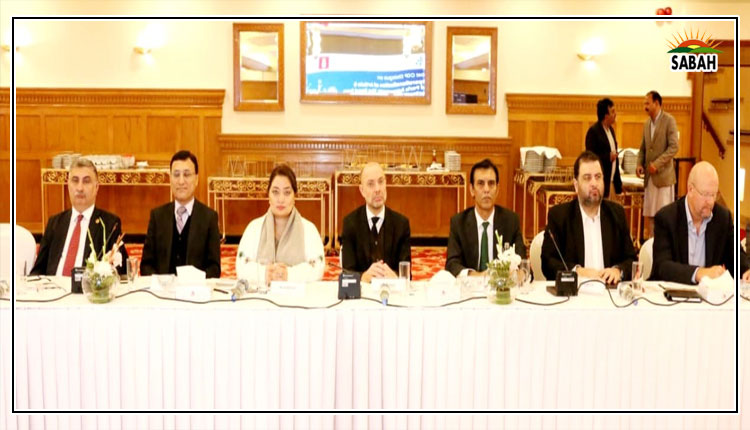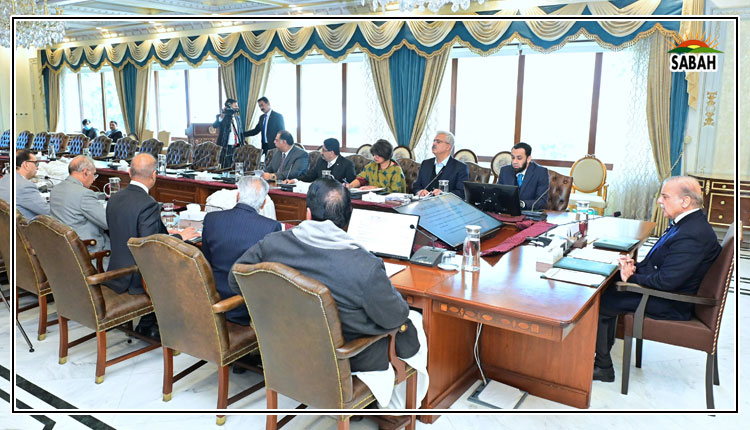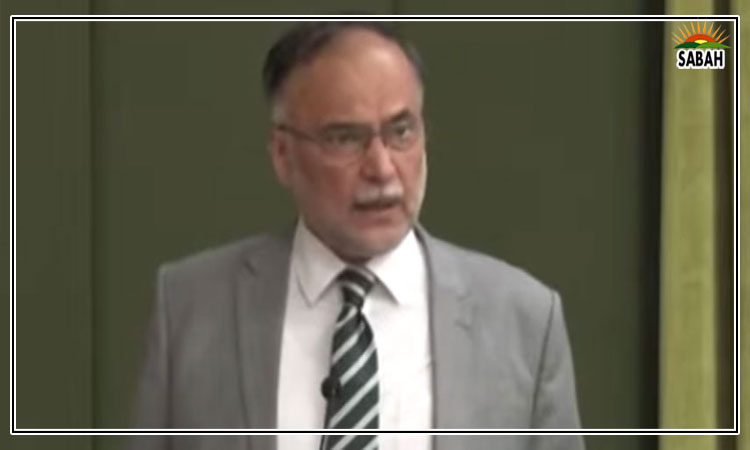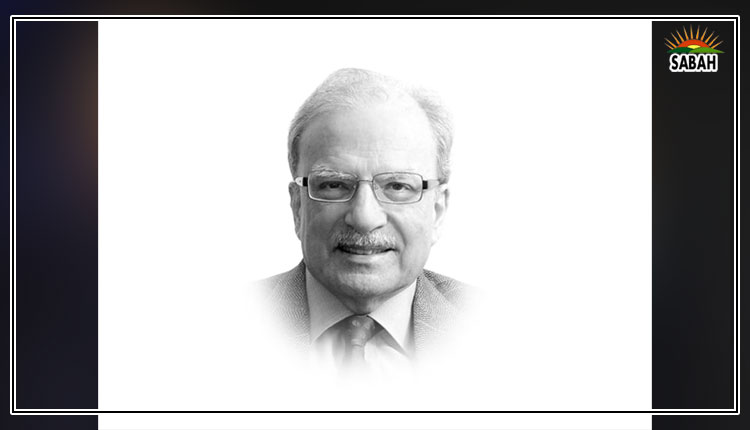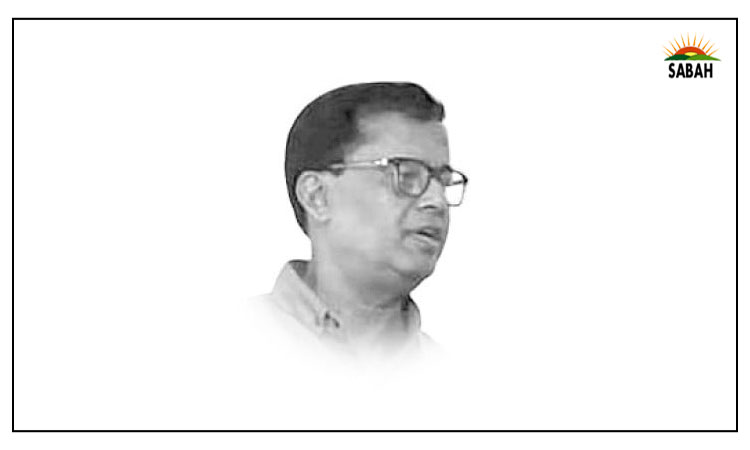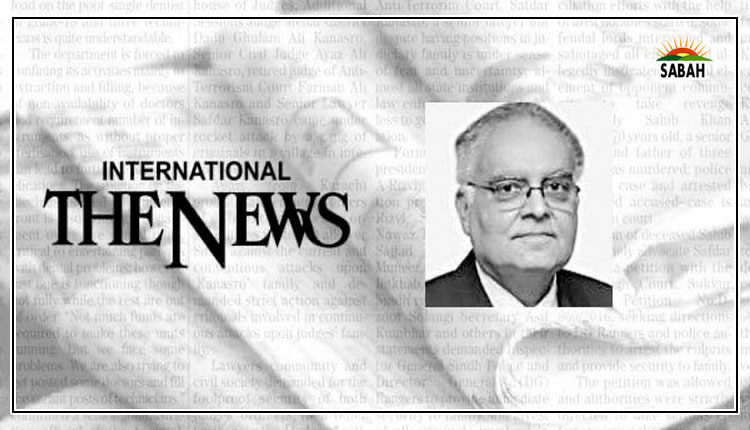A defining moment…Dr Akmal Hussain
This is a challenge that comes, but rarely, in a countrys history. The wisdom and courage with which the people resolve this crisis will test the mettle of the nation. It will also determine whether we live within a prosperous and independent state or continue to remain locked in poverty and neo-colonial dependence.
Four tendencies located in the architecture of the economy and state power have come together to threaten economic collapse and the integrity of the state. First, the failure to sustain GDP growth. This is because it is based on foreign aid, rather than the capabilities of the people. Second, a rent-based institutional structure that enriches the ruling elites while impoverishing the people.
Third, a greater vulnerability, compared to most other countries of the world, to the recurrent floods and droughts associated with climate change. Fourth, the deteriorating governance capacity to address this multi-faceted crisis. It is in the confluence of these four seismic tendencies that an earthquake in the economic and political edifice has occurred of a magnitude unprecedented since 1971.
Given the scale and explosive nature of the crisis at hand, a technical economic silver bullet is unlikely to defuse the powder keg on a sustainable basis. The battle for Pakistans survival has to begin at the political level, wherein the ruling elite coalition recognizes three simple facts: one, the internecine conflicts between the elite factions for a larger share of the rental cake in an economy where the cake is not growing rapidly enough, is simply not viable anymore. They must unite amongst themselves and stand with the people to make the required sacrifices. This is the end of the era when the elites could call upon the poor and the middle classes to bear the burden while living in the lap of luxury themselves.
Two, for the sake of Pakistan, the establishment ought to desist from political intervention and let the organs of the state such as the judiciary, parliament and the executive function within the domains stipulated by the constitution. Three, the aspirations of the people and the vision of Jinnah must be reclaimed to dismantle the neocolonial structure of mind and economy that has perpetuated underdevelopment. Instead, reforms have to be undertaken towards a new economic structure wherein sustainable development is based on developing the capabilities of the people. In such an economy, which is powered by the talent and enterprise of all of the people, rather than a few, the growth process would be both equitable and sustainable.
The task at hand, therefore, is to chart such a path to the future that makes the economy work for the people, rather than for foreign debtors and the domestic elites. The question is how to get out of the present quagmire in the short run. Here, the series of decisions since 2018, despite warnings by the present author, have brought the economic crisis to such a critical level, that in the present political arrangements, we have been left with no option but to submit to the dictates of the IMF.
The government is faced with a Hobsons choice of saying no to the IMF and facing sovereign default; or adopting their policy requirements and triggering a politically disastrous spiral of even higher inflation, further growth slowdown, higher unemployment and greater poverty. The consequences of each of these choices belong to a realm of uncertainty that the present generation of youngsters has not faced before.
If the politically high-risk choice of adopting the new IMF programme is taken, it will of course provide short-term breathing space. Within this space, the elite coalition should unite to take four sets of policy measures. For the first, as Dr Nadeem Ul Haque was the first to propose, lease out prime urban government land to foreign property developers and use the considerable funds generated to retire foreign debt. Second, as I have been arguing, undertake a long-term strategy that reshapes the economy to make it work for and by the people. In such an economy, sustained growth could be based on universal high-quality healthcare, education and skill training. These services should be provided within an institutional framework of equality of opportunities for the development of human capabilities and access to productive resources and finance.
Third, drastically cut government non-development expenditure. For example, reduce the number of ministries from the present absurd number of 85 to less than 10. Cabinet positions have historically been given to get support from political allies and garner votes from otherwise inaccessible constituencies. This must stop. The number of ministerial portfolios should be determined by need and ministerial appointments made on the basis of merit.
Fourth, all direct and indirect subsidies to the already affluent industrial and landed elites ought to be eliminated. Instead, subsidized food for the poor should be ensured and direct income support programs for them such as BISP should be enhanced. At the same time, development expenditure should be carefully directed to projects that directly benefit the poor, increase employment and protect the physical environment.
How the government uses the brief respite that may be afforded by adopting a new IMF programme will shape the future of Pakistan. We will either continue to remain mired in poverty and dependence or else, bring out the best in the nation and move towards a future of social justice and prosperity. This is a defining moment.
Courtesy The News



